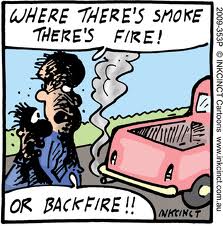
Happy Easter to you all! Many Finns head for the countryside as we wish each other "Hauskaa pääsiäistä!" Besides being a religious festivity, it is the promise of the coming spring! In Estonian you may wish "Ilusaid lihavõtteid!" Both countries have their special Easter treats. Egg plays of course a central role, but in Finland we have this very special sweet rye treat called mämmi - definitely an acquired taste, but you should try it once (tastes far better than it looks)! There are all kinds of traditions and beliefs playing out in Easter, and in Finland the most obvious is the little girls dressed out as witches. Their task: to drive away evil spirits from homes - and for that they expect to be rewarded with sweets (or other treats) - a bit like Halloween in the U.S. Other kids look for hidden Easter eggs at home - a fun tradition for the whole family.
PS. Don't forget to move your clock/watch one hour ahead on Sunday.
sanasto = sõnastik = vocabulary
herkku = delikatess = treat
kananmuna = muna = egg
maistuu paremmalta kuin miltä näyttää = tastes better than it looks
makeiset, karkit, namut = komme = sweets
noita = nõid = witch
paha henki = kuri vaim = evil spirit
pitkäperjantai = suur reede = Good Friday
pitkäperjantai = suur reede = Good Friday
pääsiäinen = lihavõtted = Easter
pääsiäislauantai = = Easter Saturday
pääsiäislauantai = = Easter Saturday
pääsiäismuna = lihavõttemuna = Easter egg
pääsiäissunnuntai = = Easter Sunday
pääsiäissunnuntai = = Easter Sunday
ruis = rukis = rye
toinen pääsiäispäivä = = Easter Monday
toinen pääsiäispäivä = = Easter Monday
uskonnollinen juhla = religioosne pidu = religious festivity







